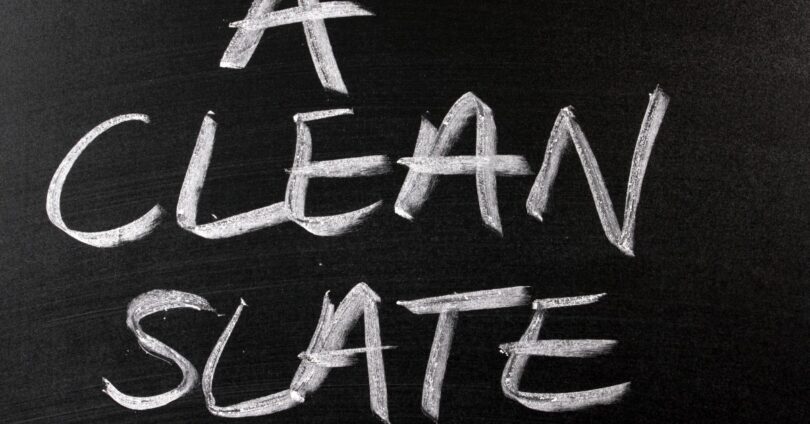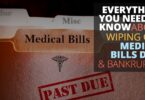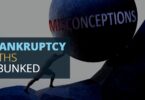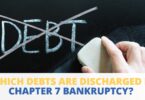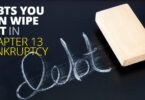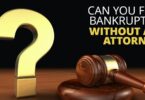This article here will help you and put you at ease worrying about your debt…
With bankruptcy, the main goal is to wipe out all debt. Filing for Chapter 7 bankruptcy is a perfectly legal way to discharge your debts. Although some debts are “nondischargeable,” most people filing for Chapter 7 will be able to discharge MOST or ALL of their debts. While credit card debt is one of the most common dischargeable debts, there are many, many other types of debt that Chapter 7 will discharge.
What Is A Discharge And How Does It Work?
A discharge releases individual debtors from personal liability for the debt and prevents the creditor owed that debt from taking any collection actions against the debtor. In other words, the debtor is no longer legally required to pay any debts that are discharged.
Although a debtor is not personally liable for discharged debts, a valid lien that has not been avoided (made unenforceable) in the bankruptcy case will remain. Therefore, a secured creditor may enforce the lien to recover the property secured by the lien.
In most cases, Chapter 7 bankruptcy filers automatically receive a discharge at the end of their case. In Chapter 7, the court usually grants the discharge 60 days after the 341(a) Meeting of Creditors. Typically, this means you will obtain a discharge about four months after filing your Chapter 7 petition.
Which Debts Are Dischargeable?
Although not all debts are dischargeable, the majority of your debts will be discharged through Chapter 7, especially if you do not have any extraordinary circumstances. Among your dischargeable debt, all your debts that arose before the date of filing for Chapter 7 will be discharged. You will still be responsible for any debt you incur after filing your petition but before receiving a discharge.
Below is a list of the most common dischargeable debts:
- credit card charges (including overdue and late fees)
- collection agency accounts
- medical bills
- personal loans from friends, family, and employers
- utility bills (past due amounts only)
- dishonored checks (unless based on fraud)
- student loans (only in a few rare circumstances)
- repossession deficiency balances
- auto accident claims (except those involving drunk driving)
- business debts
- money owed under lease agreements (includes past due rent)
- civil court judgments (unless based on fraud)
- tax penalties and unpaid taxes past a certain number of years
- attorney fees (except child support and alimony awards)
- revolving charge accounts (except extended payment charges)
- social security overpayments, and
- veterans assistance loans and overpayments.
Article references:
www.nolo.com/legal-encyclopedia/debt-discharged-chapter-7-bankruptcy.html

